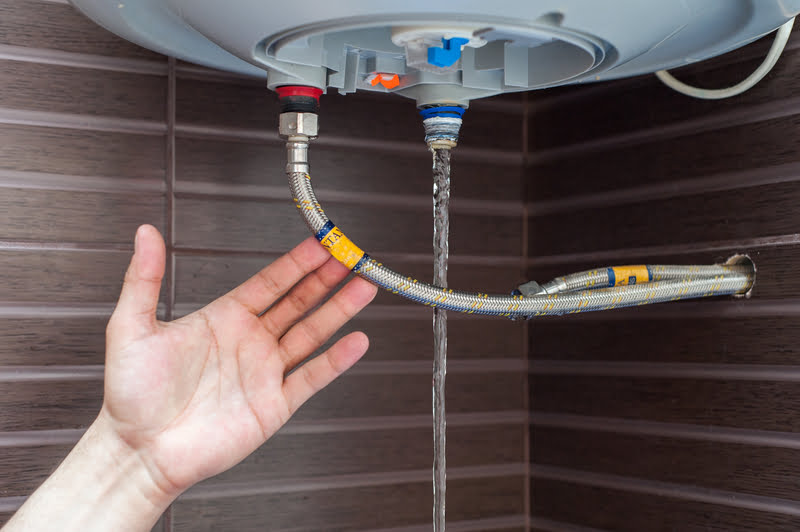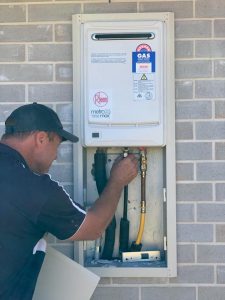Methods to Address the Most Common Heater Urgent Issues
Methods to Address the Most Common Heater Urgent Issues
Blog Article
Just how do you actually feel on the subject of Common Hot Water Heater Problems?

A water heater is one of one of the most vital fundamental appliances that can be found in a residence. With hot water heater, you don't need to experience the stress and anxiety of heating water by hand every single time there is a demand to take a bath, wash, or the meals. However, there is constantly an opportunity that your hot water heater would act up similar to most mechanical devices.
It is essential to note any little malfunction and tackle it quickly prior to things get out of hand. Most times, your water heater begins to malfunction when there is an accumulation of sediments as a result of continuous use. As a precaution, regular flushing of your hot water heater is recommended to prevent debris build-up as well as prevent useful failure.
Common hot water heater emergencies and how to manage them
Inadequate hot water
It may be that the water heater can not sustain the hot water need for your apartment or condo. You can update your water heating unit to one with a larger capacity.
Rising and fall water temperature level.
Your hot water heater might begin producing water of various temperature levels usually ice hot or cool hot. In this situation, the first thing you do is to ensure that the temperature level is set to the preferred degree. If after doing this, the water temperature level maintains changing during showers or other activities, you might have a faulty thermostat. There might be a need to replace either the heating or the thermostat unit of your water heater.
Leaking hot water heater container.
A leaky tank could be a sign of corrosion. It can cause damage to the flooring, wall and also electric devices around it. You might even be at risk of having your house swamped. In this circumstance, you ought to shut off your water heater, enable it to cool, and also thoroughly seek the source of the problem. Sometimes, all you need to do is to tighten a few screws or pipe connections in cases of small leakages. Yet if this does not function and also the leakage continues, you might require to employ the solutions of a technician for an appropriate replacement.
Tarnished or odiferous water
When this happens, you require to know if the issue is from the storage tank or the water source. You are particular that it is your water heater that is defective if there is no funny odor when you run cool water. The stinky water can be triggered by rust or the build-up of microorganisms or debris in the hot water heater container. When you see this, you can attempt flushing out your storage tank or changing the anode if the trouble lingers. The feature of the anode is to clear out bacteria from your tank. Because the anode pole replacement needs a comprehensive knowledge of your water heating unit, you will certainly need the assistance of a professional.
Conclusion
Some house owners ignore little warning and also minor faults in their hot water heater device. This just brings about additional damages and also a possible full malfunction of your device. You ought to manage your hot water heater mistakes as quickly as they come near prevent even more expenses and also unneeded emergency difficulties.
With water heating units, you do not require to go through the anxiety of home heating water by hand every time there is a demand to take a bathroom, do the washing, or the meals. It might be that the water heating system can not sustain the warm water need for your apartment or condo. Your water heating system might start producing water of various temperatures generally ice cool or scalding warm. If there is no funny odor when you run cool water, after that you are particular that it is your water heating unit that is defective. The odiferous water can be caused by rust or the build-up of microorganisms or sediments in the water heating system storage tank.
Water Heater Burst: Why This Happens And What To Do Next
Water Heater Explosion Warning Signs
Since storage water heaters are made of metal and store large volumes of heated water, they carry an increased risk of leaking or even exploding as they begin to rust at the fittings and seams over time. If the thermostat controlling the water temperature within the tank is faulty, or if mineral buildup inside the water heater prevents the thermostat from sensing the water’s temperature correctly, the water could become overheated. This will expand its volume within the tank, causing it to press at the tank’s fittings and seams. If these fittings and seams are rusted or corroded, the pressure could result in a leak or even an explosion.
Here are some risk factors and warning signs of an increased risk of water heater leak or explosion:
Your water heater is more than 10 years old. Your water heater makes clanking, banging or rumbling noises as it heats up, indicating that sediment has built up and hardened inside the tank. There is visible rust on the outside of the water heater, especially located at the pipe fittings or the seams that run down the tank. There is rusty water coming from your water heater, indicating that there may be rust building up inside. Your water heater is leaking, which could indicate either a crack somewhere in the tank or a malfunctioning temperature-and-pressure (T&P) relief valve. What To Do When Water Heater Leaks
If you find water dripping or seeping out of your water heater, or pooling around it, it means your water heater is leaking. If you find a leak, it may be best to call a plumbing professional to diagnose the problem and determine how best to handle it. If you choose to tackle it on your own, there are a few things you can do.
TURN OFF THE POWER
Next, shut off the power to the hot water tank at your home’s electrical breaker box. If you don’t shut off the power, the heating elements within the tank could continue to stay hot, which could pose a fire risk.
If you have a gas-powered water heater, you’ll also need to shut off the gas line leading into the tank.
FIND THE LEAK
Now it’s time to determine where the leak is coming from. Likely locations are the T&P valve, the drain valve or one of the pipes or fittings that feed into the top of the tank. If you see any rust or corrosion on the outside of your water heater’s tank, pipes or fittings, these could also be the source of the leak.
REPAIR THE LEAK
Once you determine the source of your water heater leak, you’ll have a better idea of what steps you need to take to fix the problem. It may be a simple fix—such as using a wrench to tighten fittings or replacing the T&P valve—but it may be something more complicated. You may even need to drain the tank, remove the water heater and install a new one.
https://www.abchomeandcommercial.com/blog/water-heater-burst/

I stumbled upon that page on Is Your Water Heater Leaking? while scouting around the web. Sharing is caring. Helping people is fun. Many thanks for your time. Don't forget to check up our site back soon.
Check This Out Report this page